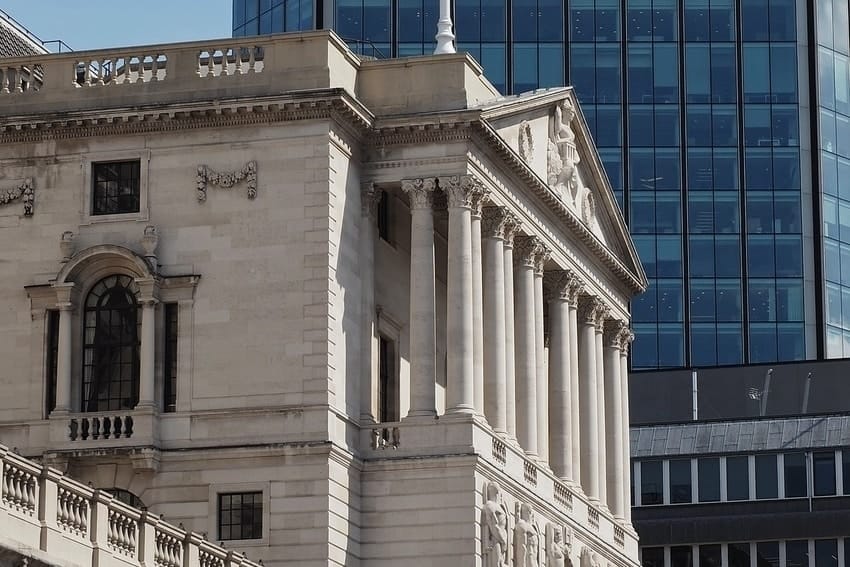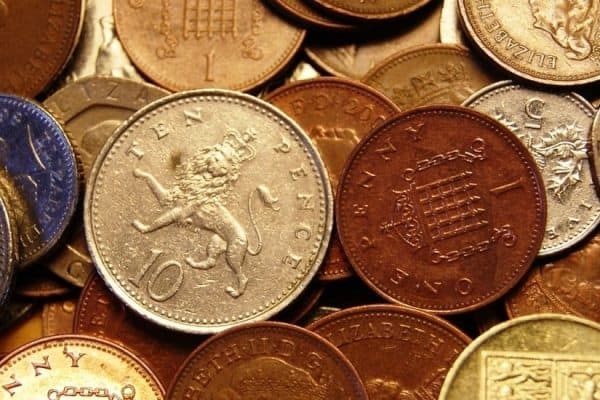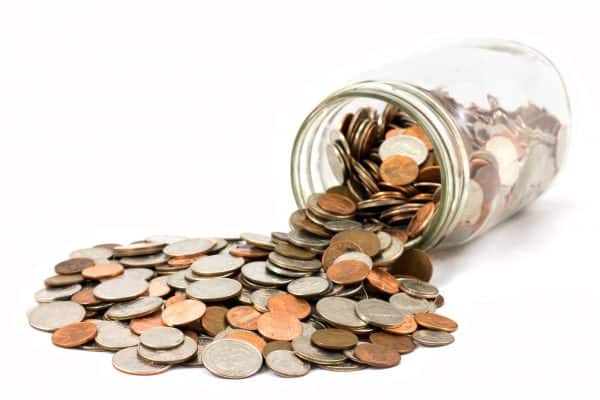Interest rates are essentially the extra cash that you get charged when borrowing money, such as taking a loan. These can fluctuate and change with the times, and you might hear a lot on the news about interest rates going up. But why and what do interest rates mean for you? Here’s our quick guide on interest rates explained.
What Are Interest Rates?
Interest rates are essentially the extra cash that you get charged when borrowing money, such as taking a loan. These can fluctuate and change with the times, and you might hear a lot on the news about interest rates going up. But why and what do interest rates mean for you? Here’s our quick guide on interest rates explained.
Who Sets the Interest Rates?

In the UK, the Bank of England is in charge to set the interest rates. The Bank of England’s interest rate is separate to the rates of interest you pay and earn on borrowing and saving. But, it does impact them.
There are a few different interest rates available when you borrow or save. The Bank of England sets the key interest rate in the UK, called the ‘Bank Rate’, which is important as it influences many other lending rates offered by other banks. But for loans, other factors are considered when setting an interest rate, such as the risk of the loan not being paid back. The greater the risk, the higher the rate the bank will charge.
The Bank of England interest rate is the rate of interest that banks and lenders pay when they borrow money. So, when the interest rate changes, banks and lenders often pass these changes on to their customers. Generally, when the Bank of England interest rate goes up, so do interest rates for customers. This can be a good or bad thing depending on your perspective. It may mean a loan product becomes more expensive, but it can also mean savings earn a bit more interest. If you have a mixture of both credit and savings accounts, you may well find that interest rate changes make little difference to you.
Why Do Interest Rates Change?
Interest rates change as way to control inflation. The Bank of England have been given a target by the government to keep inflation at 2% as this ensures the economy grows sustainably. So, if the inflation the UK is too high, the interest rates will rise to help inflation go back down. Higher interest rates help to bring down inflation because it makes it more expensive for people to borrow money and helps to encourage more people to save, meaning people will tend to spend less. If people spend less, the prices of things tend to fall or rise more slowly, and slower price rises mean lower inflation.
And vice versa if inflation is too low – reducing interest rates makes borrowing cheaper, making people more inclined to spend. This then boosts the economy and prices can climb again as a result. Of course, before changing interest rates, the Bank of England consider the current state of the economy and what it’s likely to do in the coming months. Such as how fast prices are rising, how the UK economy is growing, and how many people are in work.
What Is The Current Interest Rate?
The Bank of England make changes to the interest rate regularly, with reviewing how our economy and inflation as time goes on. The Bank’s monetary policy committee (MPC) usually meet to discuss and set UK interest rates eight times a year, this happens roughly once every six weeks.
It’s important to keep an eye out on whether interest rates rise, fall or stay the same as even a small change can have a big impact. As of 3 August 2023, the current interest rate was raised by 0.25% and stands at 5.25%. This was done to combat the current inflation rate of 6.8% which is higher than the 2% target the government wants. The next interest rate decision takes place on 21 September 2023. To keep up to date with today’s interest rate check out the Bank of England for the most recent information.
What Do Interest Rates Mean For You?
You might be wondering why interest rates matter to you, or who is affected by interest rate changes. And the answer is, interest rates are important and mean a lot to you. If interest rates increase, borrowing could be more expensive for you. Whether you are looking at getting a mortgage for a house, a new car or something on credit, taking out a loan or paying one back, or any other form of borrowing. It’s important for you to understand how a change in interest rates can impact your money and ability to pay any borrowing back, as interest rates affect our daily lives and have a big influence on what’s left over each month.
How Homeowners Are Affected By Interest Rates

Homeowners who pay mortgages will face the biggest impact off the back of the interest rate increase. Many mortgage deals are based around the Bank of England interest rate, such as standard variable rate mortgages, or base rate trackers. Homeowners with this type of mortgage will be very likely to see increases in their monthly payments. These may not seem like much on a monthly basis, but can add up over the course of a year or more. So, it may be worth shopping around to see if a better deal is available elsewhere, once you factor in switching fees and other costs.
On the other hand, homeowners with fixed rate mortgages won’t be impacted by the interest rate rise just yet. But, it’s worth checking when your fixed interest rate deal will end, and what it will be once the deal is up. Then, you can make a note of when you need to look around again to make sure you’re still getting the best deal.
Interests Rates And Savings

Good news for savers, interest rate rises are generally good news for savings, as they mean you earn more interest on the money you save. Who wouldn’t want that?! Many savings accounts come with rates that are fixed for a certain period of time, so you may find that yours won’t change. But even if the interest rates cause you to earn a few more quid, it’s worth it. And there are even better deals available on new savings accounts. Remember, the longer you’re prepared to leave your money untouched, the better the interest rate you’re likely to get and the more you’ll earn on your savings in the long term. If you’re a UK Taxpayer, you’ll probably have to pay Income Tax on any interest you earn on your savings though, but most people have a personal savings account allowing them to earn up to £1,000 interest on savings without paying tax. Just know that lower interest rates have the opposite effect and cause your savings rates to go down as well.
Will The Interest Rate Affect Loans?
If you have outstanding credit balances like credit cards or personal loans, the interest rate rise probably won’t affect you. The vast majority of non-mortgage loans are charged at fixed interest rates. So, your existing accounts won’t be impacted by these changes. However, the interest rate rises could mean changes to charges by lenders in the future. They may choose to put rates up, or become stricter about who they will accept – it’s too soon to tell. This will make it even more important to shop around before applying for any credit product to make sure you get the best deal. Here at Sunny, you can apply online for a loan and we can match you with a range of lenders to fit your unique situation.
For more information about the economy and the best tips and tricks to help you save money, check out our Good Vibes blog.



















